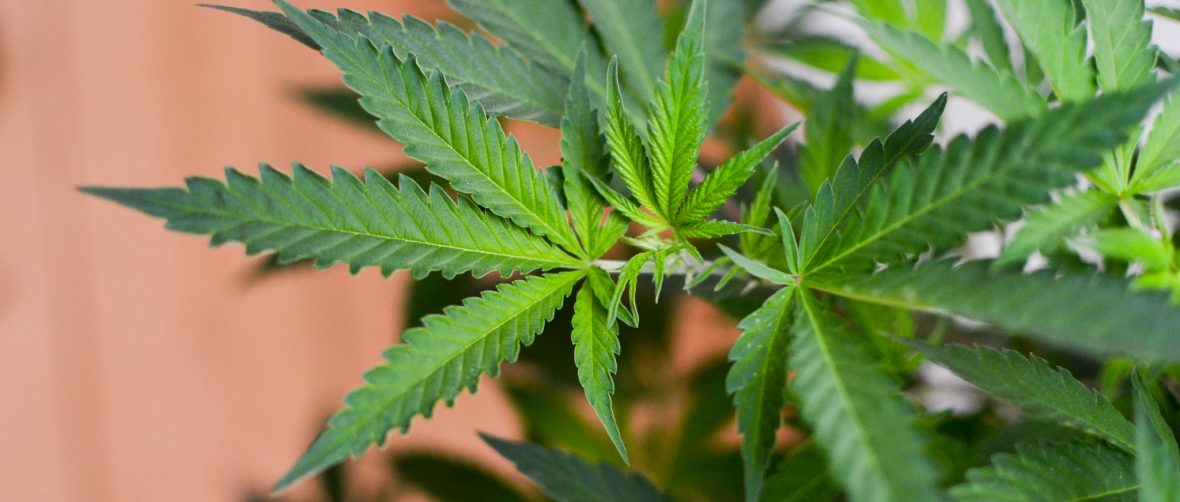New Jersey Assembly and Senate committees voted in favor of companion bills that would legalize marijuana and provide for the expungement of prior cannabis convictions on Monday.
The Assembly Appropriations Committee voted 6-1, with two abstentions, to advance the bill, which was amended at the last minute to broaden expungement provisions and revise the tax structure of a legal cannabis system.
The Senate Judiciary Committee also approved its version of the legalization legislation in a 7-4 vote, with one abstention.
“When I think of [the bill], I think of two words: opportunity and hope,” Assemblywoman Annette Quijano (D), who sponsored the legislation, said at the hearing.
“There have been far too many people, especially those from Black and Hispanic communities, who have been negatively impacted by the criminalization of cannabis,” she added in a press release. “It is time we listen to the will of the majority of New Jerseyans and take a common-sense approach to regulation of cannabis. This bill is a huge first step.”
The Assembly and Senate committees also approved separate companion bills to revise requirements to qualify for medical cannabis in the state. And another piece of legislation revising the procedure for expunging various criminal records also passed both committees.
“This legislation is critically important as we move toward legalization of adult-use cannabis in New Jersey,” Assembly member Jamel Holley (D), who sponsored the expungement bill, said in a press release. “Without this bill, many residents would continue to be affected by the criminalization of small amounts marijuana as a result of prior convictions long after the laws change.”
“Broader regulation around expungement will give residents the opportunity to right the wrongs of the past and clean the slate, enabling them to gain employment and seize the opportunities life presents them,” Holley said.
The committee wins come one week after Gov. Phil Murphy (D) and leaders in both chambers announced that they’d reached an agreement on legalization legislation following months of contentious negotiations. Conflicting stances on certain aspects of regulations—namely the tax rate—were resolved, but the last-minute amendments caused hours-long delays in both committee hearings on Monday.
The governor also included legalization revenue in his budget proposal earlier this month, projecting $60 million in resulting tax monies for the 2020 fiscal year.
Murphy worked the phones throughout the day to rally support for the legislation, whose ultimate fate remains murky on the Senate floor, where the final showdown could come next week.
“There’s no question it’s going to take a village on this one,” the governor said. “I am all in on this. We have to get this done.”
“We’re going to have to put everything into this. There is only one state in America that has done this legislatively. Public opinion is overwhelmingly in favor of this. We’re not only expunging and undoing a whole lot of social injustices but creating a new industry. This is not an easy lift.”
While the Assembly committee approved the bill first, it was less clear whether the Senate committee would push the bill forward. In the run-up to the vote, Sen. Kip Bateman (R) complained that the committee hadn’t seen the final version of the bill and said he would be voting “no.”
“Legalizing marijuana would have an enormous impact on all of our communities. Asking us to form an opinion without seeing the full details of the bill is an incredibly irresponsible way to govern,” Bateman said.
Sen. Michael Doherty (R) also voiced his opposition to the legislation on Monday, calling the bill “a deal with the devil that sacrifices children and communities for short-term political gain.”
Before the legalization bill was formally debated by the Assembly panel, Newark Mayor Ras Baraka (D) was given an opportunity to speak. He’s one of several New Jersey mayors who demanded that legalization legislation include a provision to automatically expunge the records of people with prior cannabis conviction, or else their respective municipalities wouldn’t allow marijuana businesses.
Baraka said that he wasn’t going to voice his opinion on the bill one way or the other, but simply wanted to reiterate his position on expungements.
“If we are going to legalize marijuana in the state of New Jersey, then we should remedy all of the folks who have been victimized by a war on drugs,” he said. “We believe that the onus should not be put on the individual but in fact should be put on the state itself.”
Murphy said that a “virtual expungement” process was achievable, and that did make it into the amended legislation, but he argued that automatic expungements “is functionally not possible.”
The legislation would allow adults 21 and older to possess, consume and purchase certain amounts of cannabis.
A five-member commission would be responsible for studying the effects of legalization and ensuring social equity in the marijuana industry. It would also be charged with approving licenses for cannabis cultivators, processors, wholesalers and retailers.
Marijuana deliveries and social consumption sites would be allowed, but home cultivation would be prohibited.
“Today’s votes are an important step toward legalizing adult-use marijuana in New Jersey. Although this bill is not perfect, we greatly appreciate the changes that the sponsors of the legislation have made based on the recommendations of advocates,” Roseanne Scotti, New Jersey state director for the Drug Policy Alliance, said in a press release. “While we are encouraged by the inclusion of provisions that our coalition has advocated for – such as expanded expungement – to better address fairness and equity, we are disappointed that there is no provision that allocates tax revenue generated by marijuana sales back to the communities most harmed by marijuana prohibition.”
New Jersey lawmakers previously approved a legalization bill during a joint session of Senate and Assembly committees last year, but the legislation in its original form did not advance to full floor votes in light of the ongoing negotiations between Murphy and Assembly and Senate leaders.

